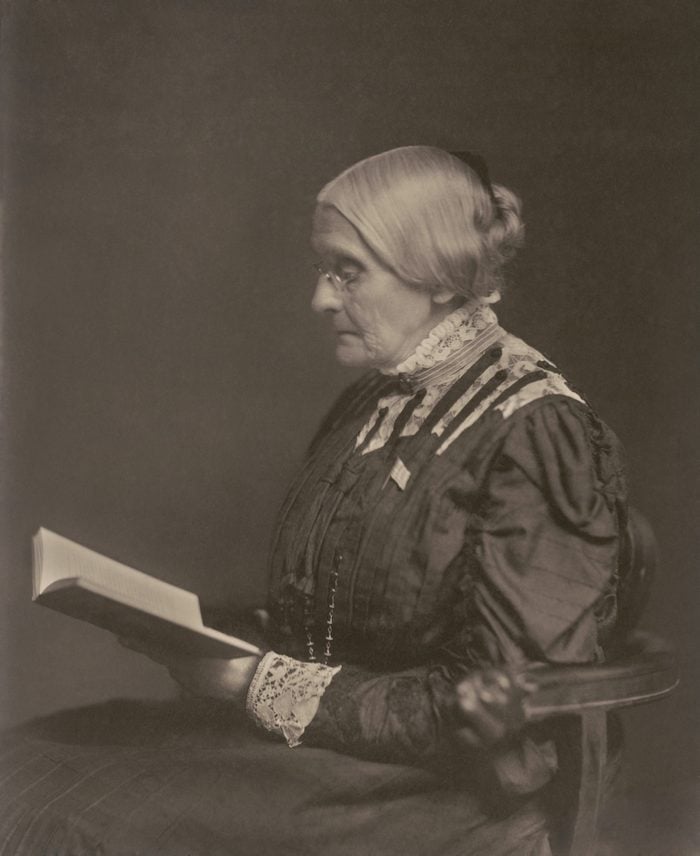
Susan B. Anthony
Believing failure to be impossible, this New York disruptor is one of the main reasons ladies get to collect a sticker on election days in the United States. In fact, the 19th Amendment to the Constitution—which granted the right to vote to all U.S. women over 21 in 1920—is also known by her name. According to the Susan B. Anthony House museum, she participated in her first women’s rights convention in 1852. Over the next 54 years, she published The Revolution; circulated petitions for married women’s property rights; established a press bureau to provide articles to national press outlets; gave speeches; formed Working Women’s Associations for the publishing and garment trades; called the first Woman Suffrage Convention in Washington, D.C. (1869); and was arrested for voting (1872). She was also a vocal advocate for abolishing slavery and improving workers’ rights, higher education for women, and training standardization and registration for nurses. Check out these rarely seen photos of the first women voters in 1920.
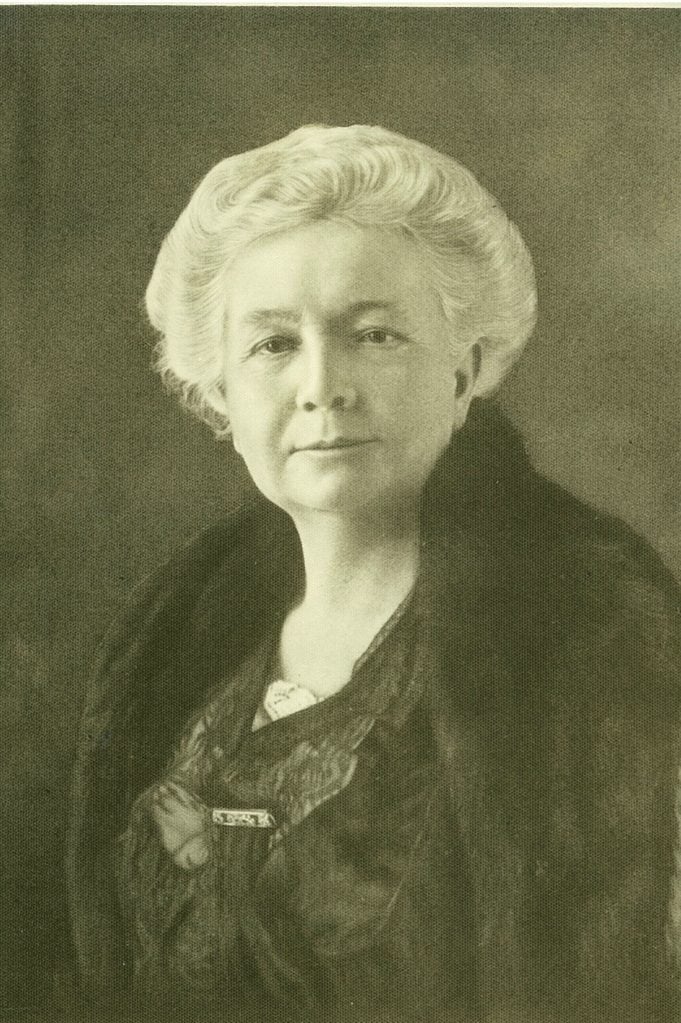
Anna Bissell
Although it was her husband who invented the carpet-sweeping machine in 1876 and founded Bissell, Anna Bissell became the CEO of the company in 1889, making her the first female CEO in America. After her husband’s death, Anna was the one who took the sweepers to the next level with aggressive marketing. She traveled around the country selling sweepers and making deals with major retailers to carry the Bissell brand. Eventually, she took the brand international. She was also one of the first company heads to give workers pension plans and workers’ compensation. Check out more female inventors who created things you never knew were invented by women.
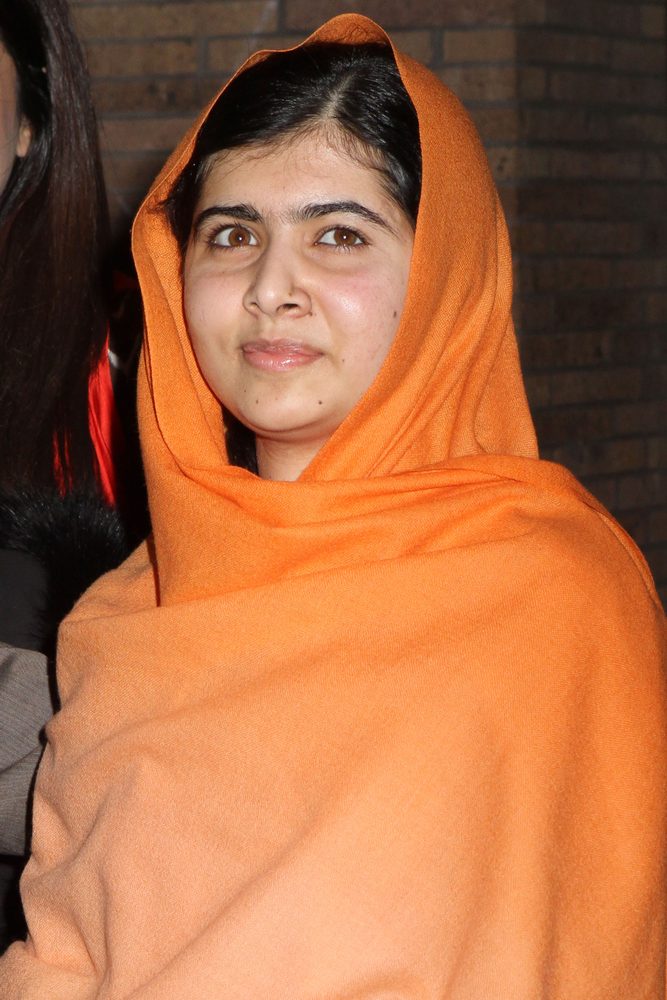
Malala Yousafzai
Proving you can never be too young to stand up for what’s right, this Pakistani girl is one of the most inspiring women. She started to take on the Taliban at 11. When the group began seizing power in her hometown and attacking girls’ schools, she, then a student at the school her father founded, gave a speech defending her and all women’s right to an education. She used a fake name to blog for the BBC in 2009, talking about living under the Taliban’s oppressive thumb. She continued to speak out even after her cover was blown and the terrorists issued a death threat. In 2012, the 15-year-old was on her way home from school when a masked gunman boarded the bus and shot her in the head. She survived, and after a medically induced coma and multiple surgeries, she returned to school in England, addressed the United Nations, published her first book I Am Malala, and established the Malala Fund a year later. In 2014, she became the youngest person to win the Nobel Peace Prize.
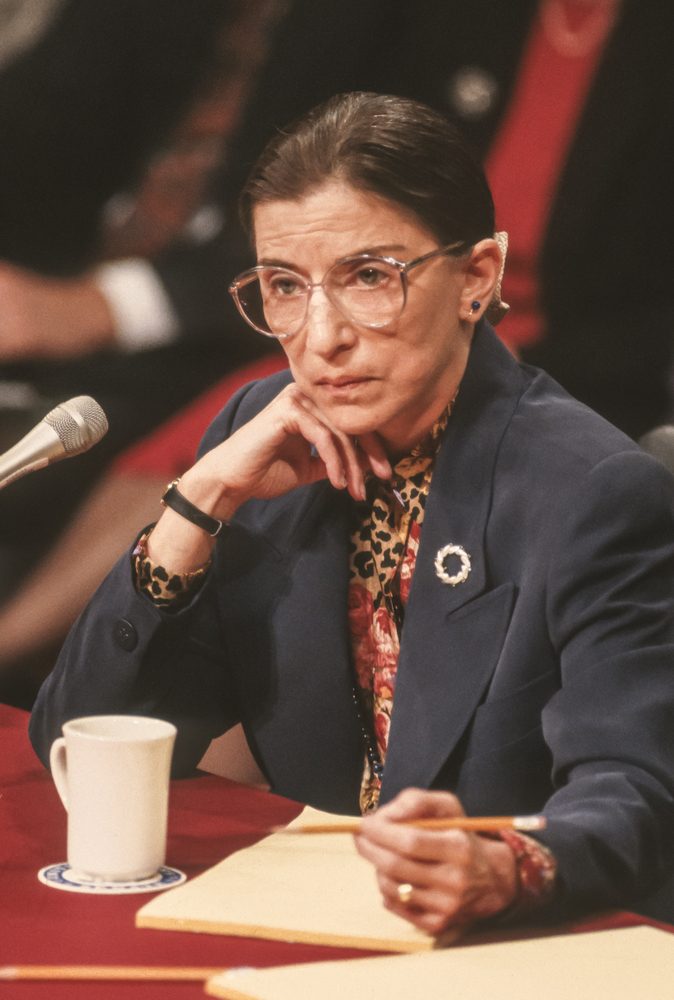
Ruth Bader Ginsburg
Sure, she was not the first female Supreme Court Justice—that would be Sandra Day O’Connor—but Ruth Bader Ginsburg was the second. Before taking the bench in 1993, she was a judge of the U.S. Court of Appeals for the District of Columbia Circuit. The Notorious RBG has been a strong liberal voice and a major advocate for gender equality and women’s rights through her work with the ACLU. She was a volunteer lawyer for them and launched the ACLU’s Women’s Rights Project. She was the first SCOTUS justice to officiate a same-sex marriage and is in the Women’s National Hall of Fame. Oh, and did we mention she can still plank with the best of them in her mid-80s? According to the biography RBG, the two-time cancer survivor works with a personal trainer and swears by a circuit training workout inspired by the Royal Canadian Air Force. Don’t forget to read some of her most iconic—and powerful—quotes.
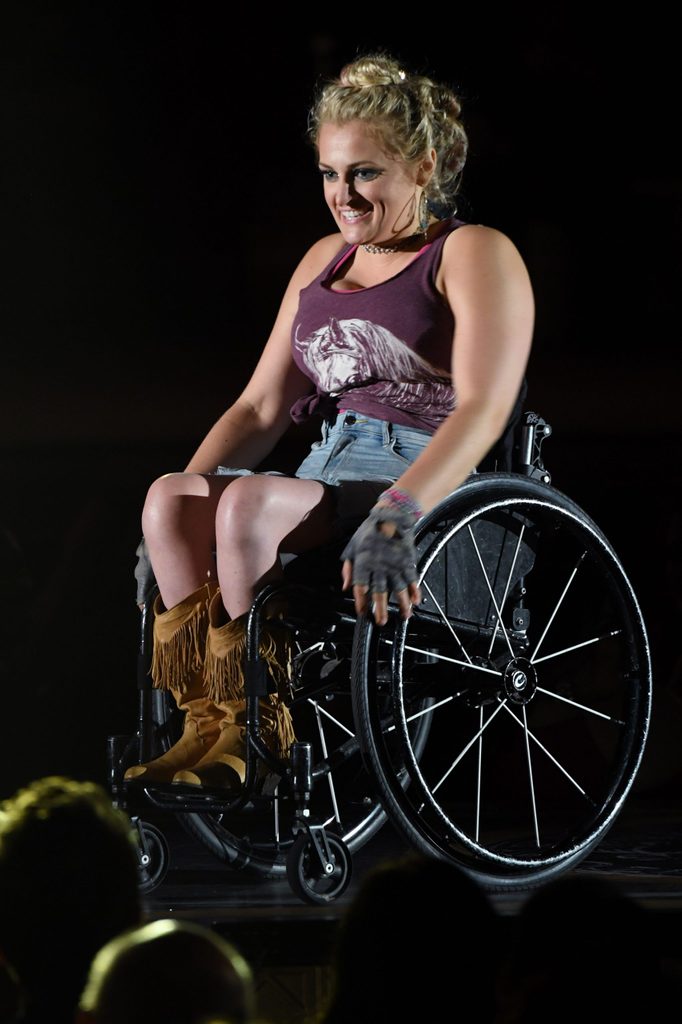
Ali Stroker
Ali Stroker took the theater world—and, indeed, the very Internet—by storm when, on June 9, 2019, she became the first performer in a wheelchair to take home a Tony Award. After becoming the first actor in a wheelchair in Broadway history in 2015, she won the award for her powerhouse performance in the revival of Oklahoma! She memorably dedicated her acceptance speech to “every kid…who has a disability, a limitation, a challenge, who has been waiting to seem themselves represented in this arena.” These are some things women weren’t allowed to do 100 years ago.
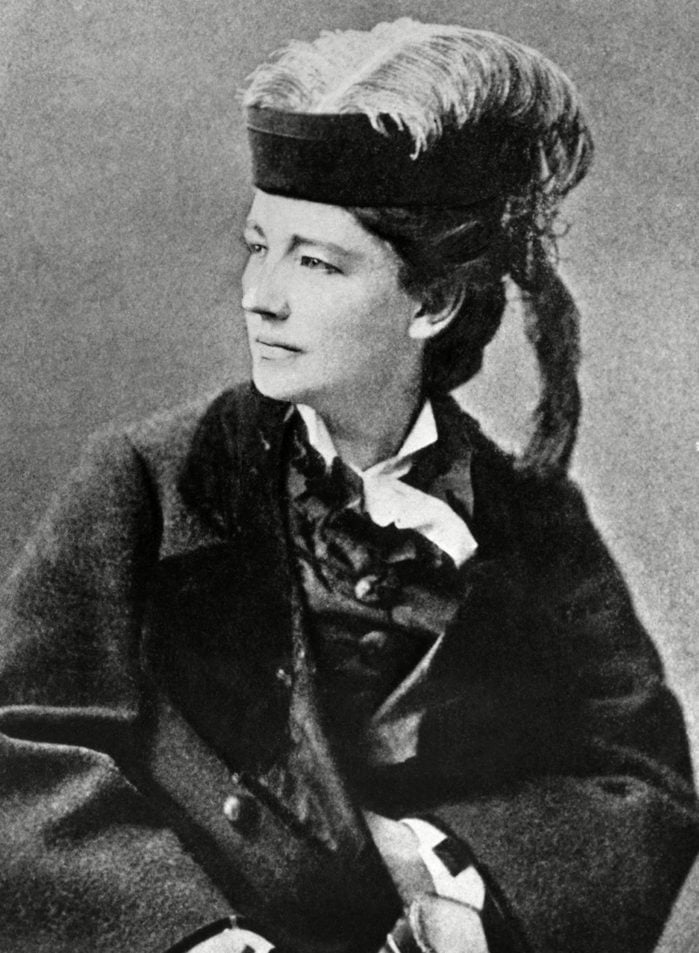
Victoria Woodhull
Hillary Clinton may have been the first woman to be chosen as a presidential candidate for a major party, but the way was paved by several other women who changed the world by running for President of the United States. The first of these was Victoria Woodhull, who started a bid for the presidency in 1872, writing to the New York Herald, “I…claim the right to speak for the unenfranchised women of the country.” It wouldn’t be another nearly 50 years until women gained the right to vote, and, at 31, Woodhull was technically too young to even be president. And yet, championing policies such as wage fairness and advocacy of civil rights, the Equal Rights Party chose her as their presidential candidate—and though she didn’t end up appearing on the ballot, her historical impact can still be felt today.
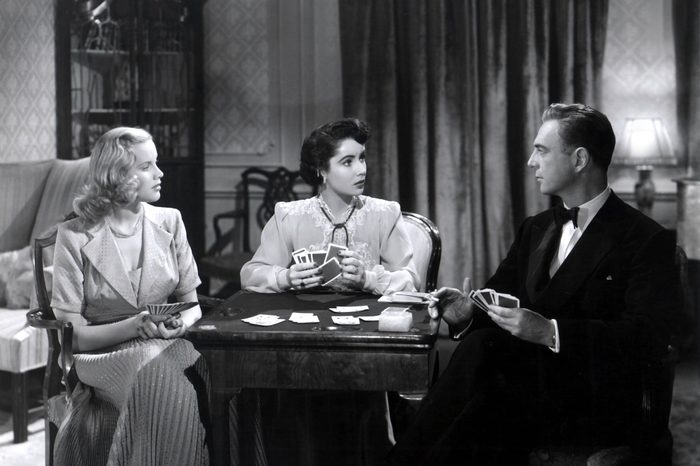
Elizabeth Blackwell
According to Smithsonian, becoming a doctor didn’t even cross Elizabeth Blackwell’s mind throughout her youth. It wasn’t until a deathly ill female friend told Blackwell that her treatment would have been far less miserable if her doctor had been a woman. That spurred Blackwell to try to change things herself—and she did, making her one of the most famous women who changed the world. She gained admittance to New York’s Geneva Medical College and was first in her class when, in 1849, she graduated and became the first woman in America to receive a medical degree. She went on to help found the New York Infirmary for Women and Children and eventually became a professor at the London School of Medicine for Women.
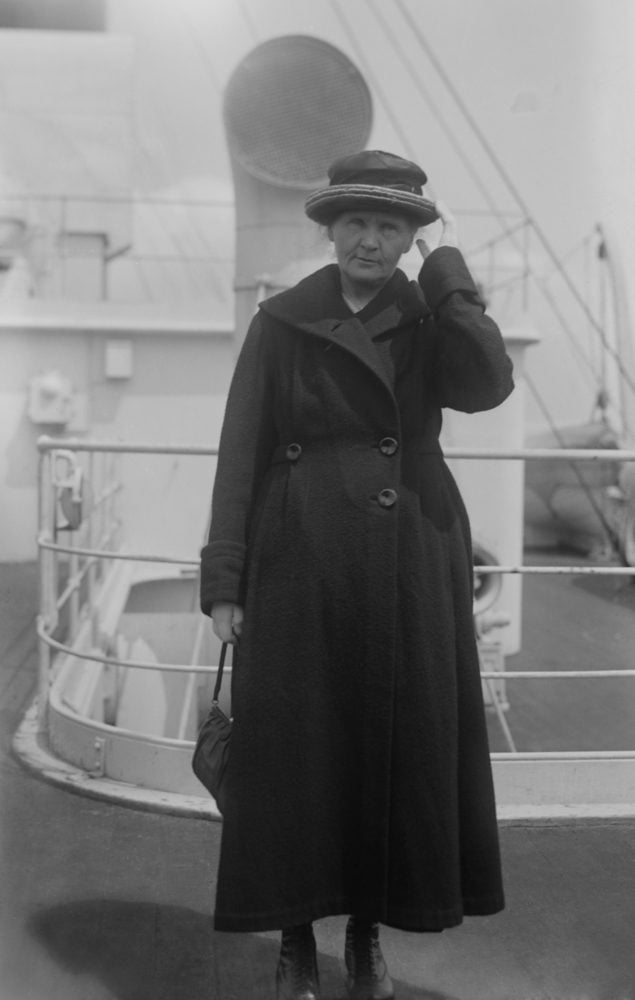
Marie Curie
Working alongside her husband Pierre Curie (who, unlike Einstein, saw his genius wife as an equal and shared authorship with her on papers they did together), this Polish physicist’s research and observations on radioactivity not only culminated in the isolation of two new heavy elements, polonium and radium, but it also earned her two Nobel prizes. Her research led to a greater understanding of how to wield radiation in medicine, forever changing diagnostic techniques and mothering modern oncology.
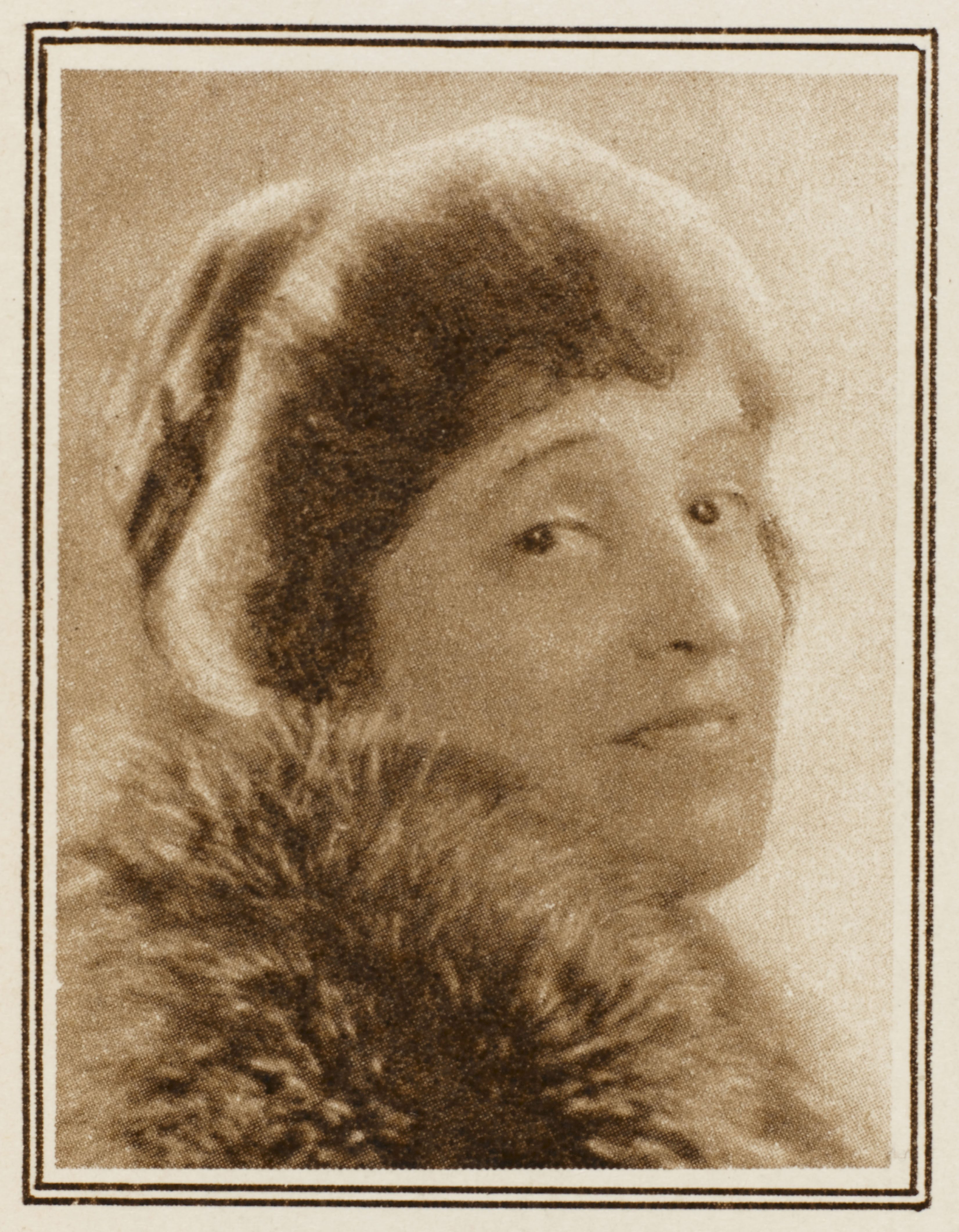
Edith Wharton
The product of East Coast high society turned novelist and short story writer became the first woman to be awarded the Pulitzer Prize for literature in 1921 for her book The Age of Innocence—despite never attending school. According to her 1937 New York Times obituary, she was also not encouraged to write as “authorship was still regarded as something between a black art and a form of manual labor” unbecoming for someone of her standing. But nevertheless, she persisted, first writing on brown paper salvaged from packages and publishing her first novel in 1899. She eventually wrote 38 books, including The House of Mirth and Ethan Frome, in 75 years. She also was awarded France’s Cross of the Legion of Honor for her World War I relief work, which included feeding and housing 600 Belgian refugee orphans as she was living in Paris when the fighting started. Pick up more great books written by female authors.
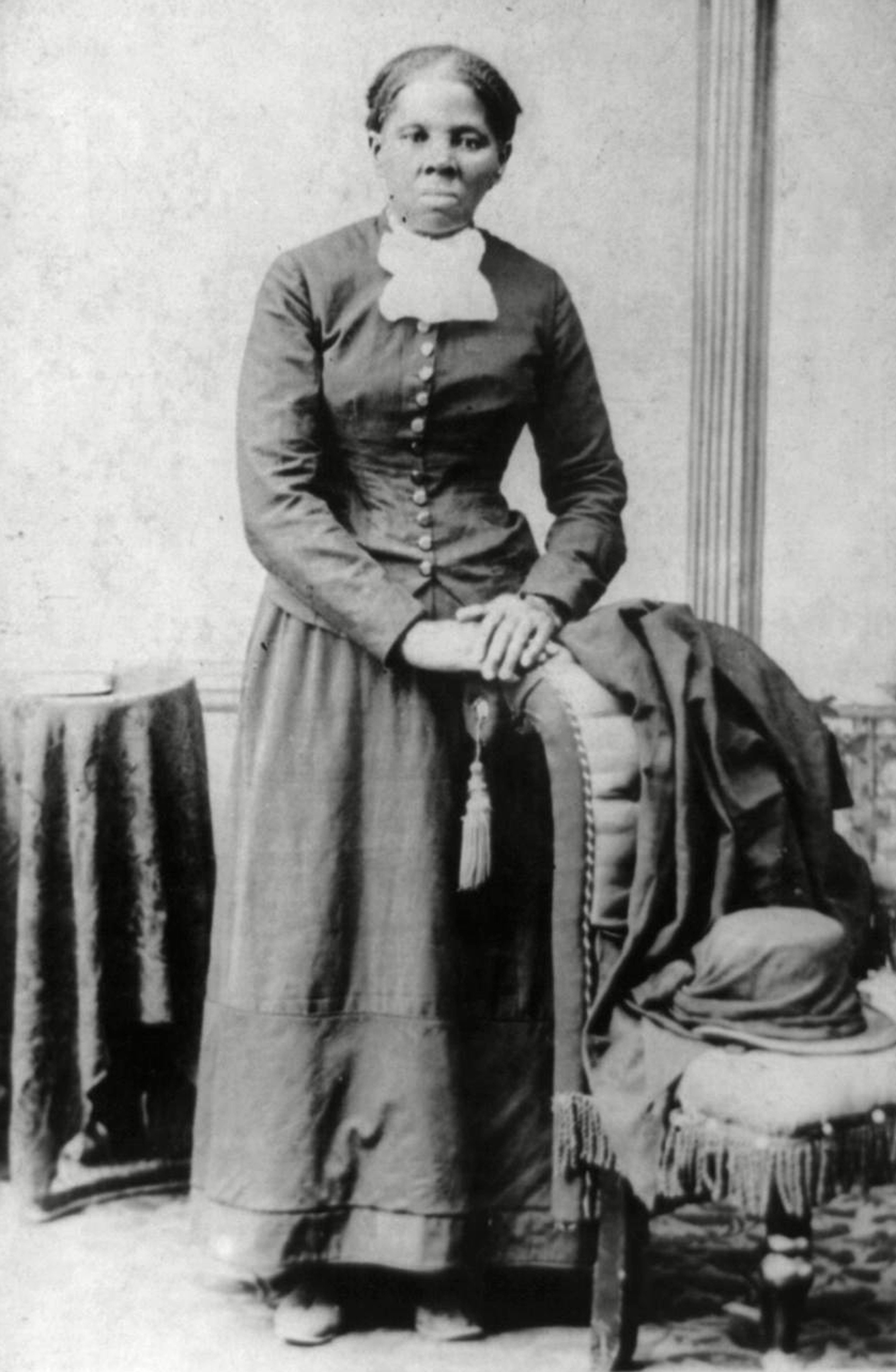
Harriet Tubman
Born into slavery as Araminta Ross in Maryland, Tubman escaped servitude and brutal beatings in 1859 but was forced to leave her free husband, siblings, and parents behind. She returned for them and hundreds of other slaves in the South, despite a reward being issued for her capture, as the most famous “conductor” on the Underground Railroad in the 1850s. She partnered with John Brown in 1858 to plan his raid on Harpers Ferry. She also worked as a scout, spy, and nurse for the Union during the Civil War. She supported herself over that three-year period by selling pies, gingerbread, and root beer as the Union only paid her $200. After the war, she continued to help by converting her property into the Home for Indigent and Aged Negroes, which was financed by giving speeches and selling her biography.
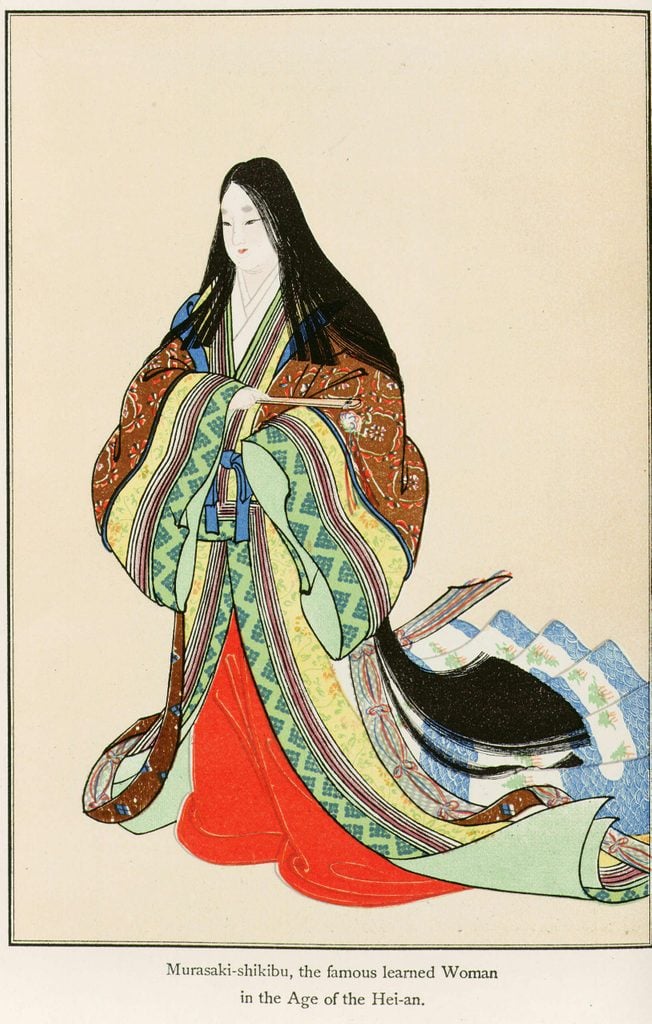
Murasaki Shikibu
We can only approximate when Murasaki Shikibu was born, and even her real name is lost to history—the name we use for her today combines her father’s title with the name of her literary heroine. But that hasn’t stopped this Japanese lady-in-waiting, who was alive around 1000 AD, from having a major historical influence. In her youth, she exhibited great intelligence and a love of learning that eventually encouraged her father to allow her to study Chinese and Buddhist literature, despite such study being primarily a male pursuit at the time. According to New World Encyclopedia, it was her love of and talent for writing that earned her the attention of the empress. Serving under the empress at the time, she produced what is widely considered the world’s first novel, a 54-chapter-long story called The Tale of Genji.
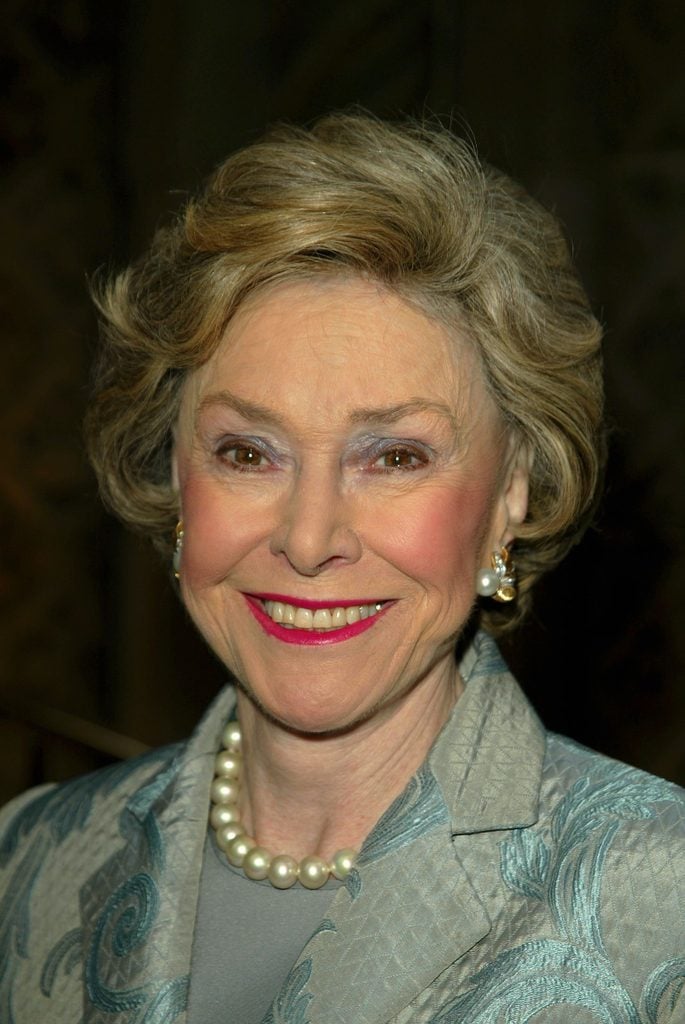
Joan Ganz Cooney
This TV pioneer made waves in a time when few women had power in the media industry. In 1966, she was producing and creating programs for New York public television when she caught the attention of Carnegie Corporation executive Lloyd Morrisett, and they began a discussion about whether TV (then seen as a hotbed of risqué and violent content) had the potential to be an educational medium for children. Ganz Cooney gained funds and did research, and when her proposal was rejected by the station where she worked, she left to join the Carnegie Corporation. She and Morrisett would found the Children’s Television Workshop, of which Ganz Cooney would be appointed Executive Director. She and other employees at the CTW would team up with puppeteer Jim Henson and, in 1969, would produce the CTW’s first show, Sesame Street. The rest is history, and Ganz Cooney is recognized in both the Television Hall of Fame and the National Women’s Hall of Fame. The greatness she has achieved should be an inspiration to support more women-owned businesses. This year, Ganz Cooney will celebrate her 90th birthday!
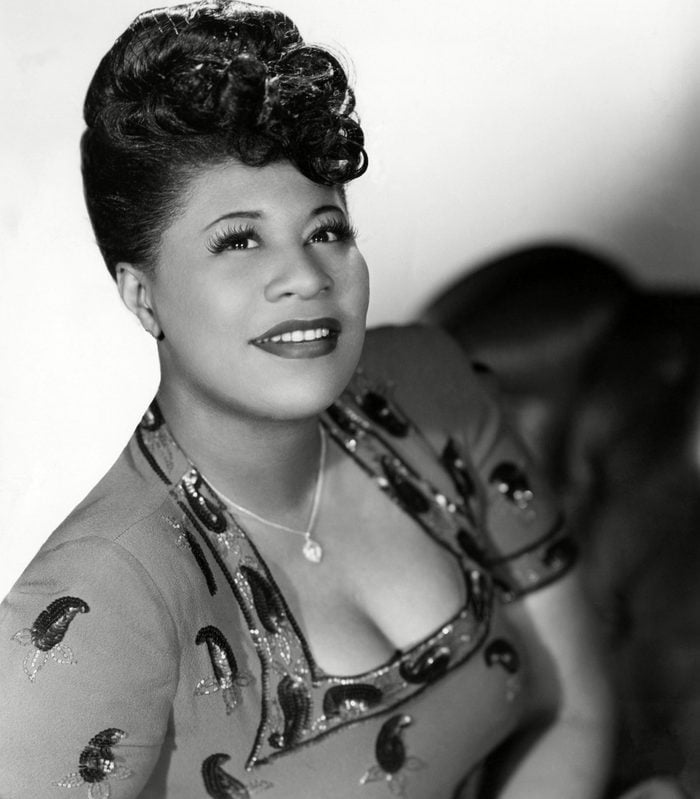
Ella Fitzgerald
She’s known as the “First Lady of Song” for a reason! The first-ever woman to win two Grammies and first African-American to win the award, period, got her start in a pretty incredible way. In 1934, a teenage Fitzgerald won the opportunity to compete in the Apollo’s “Amateur Night” talent show in a weekly drawing. According to her website, she originally planned to dance but changed her mind at the last minute and sang instead. She was noticed by a celebrated jazz saxophonist and began performing more talent shows, and her fame only grew. When she released a rendition of the nursery rhyme “A-Tisket, A-Tasket”—in 1938, when she was 21—it rocketed to number one on the pop charts and secured her future as one of the women who changed the world. In her life, she would perform at Carnegie Hall 26 times and win 11 Grammies after her history-making first two.
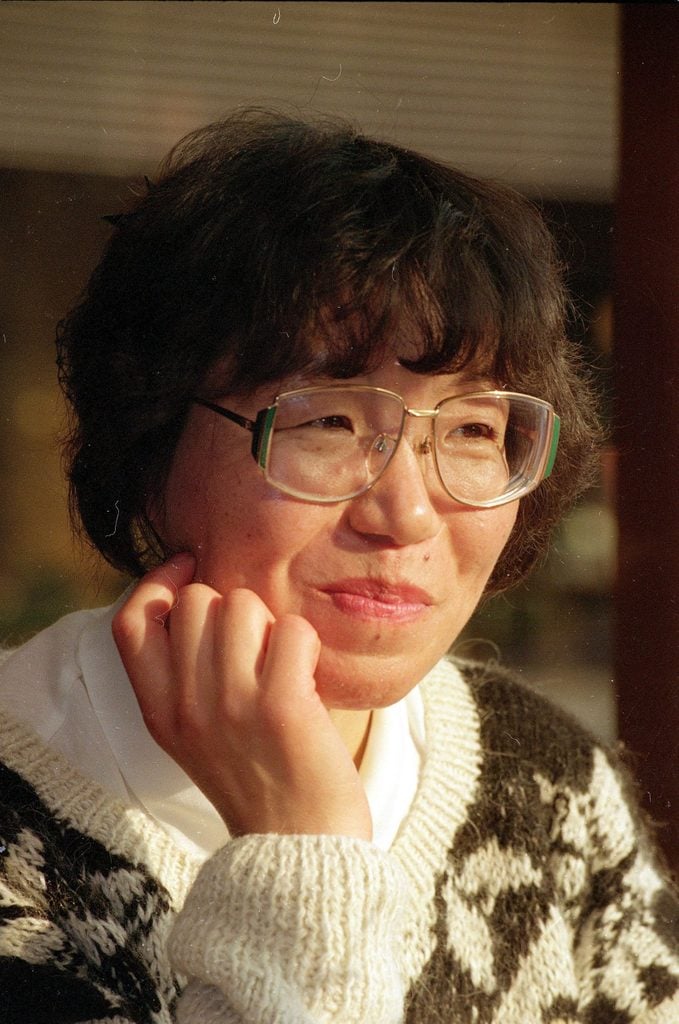
Junko Tabei
Twenty-two years after the first-ever successful mission to the top of Mount Everest, Japanese mountaineer Junko Tabei became the first woman to reach the peak. She led a team of 15 women, accompanied by six Sherpas, and reached the summit with one of the Sherpas on May 16, 1975. But she wasn’t done climbing—far from it. She went on to become the first woman to climb the highest mountain on every continent (known as the Seven Summits), reaching the seventh in 1922. With a five-foot stature and a weight of only 92 pounds, Tabei shattered stereotypes about how a strong, athletic person could look.
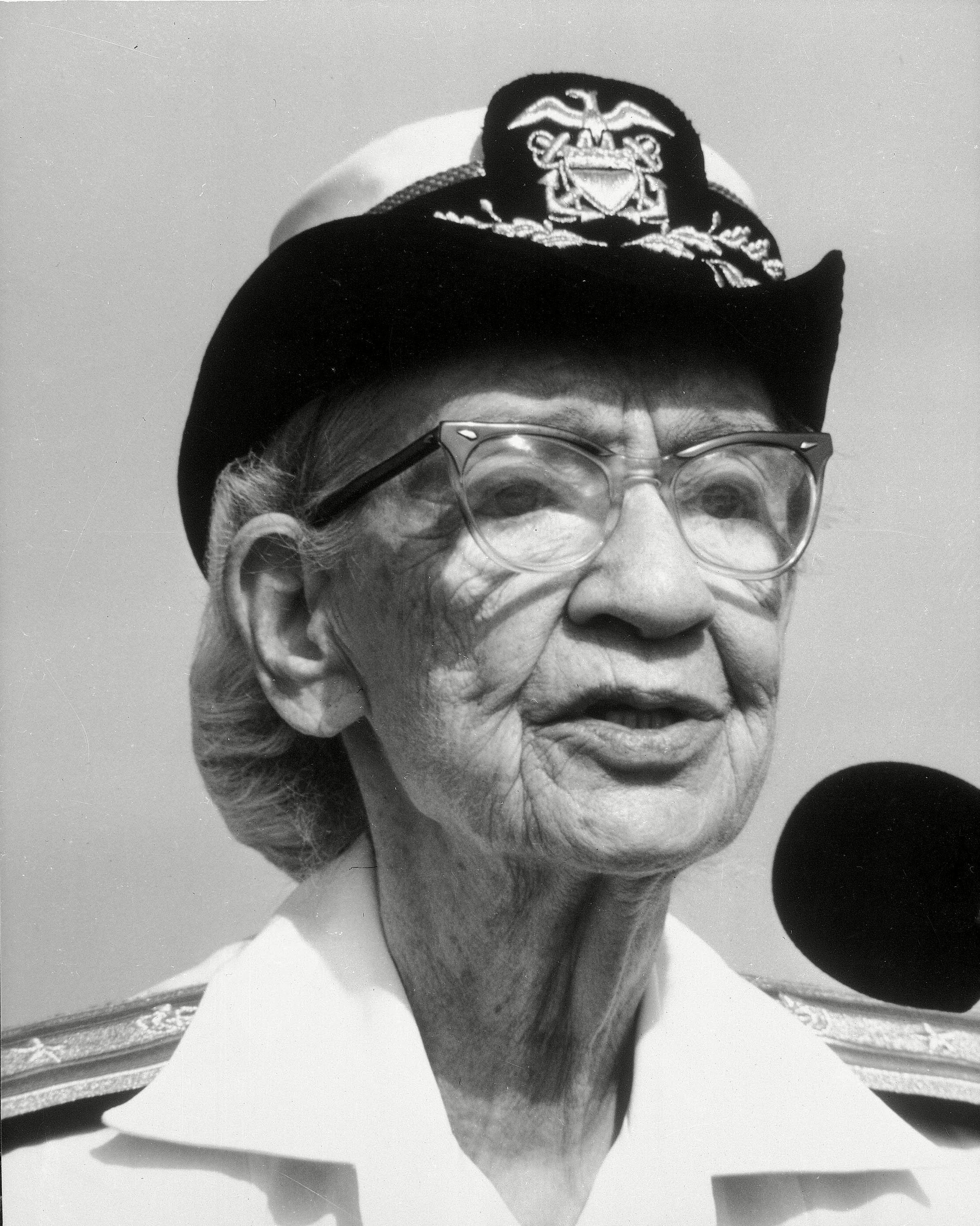
Grace Hopper
This computer whiz with a bachelor’s degree from Vassar and a PhD in mathematics from Yale worked on the Mark I project, one of the original functioning computers, through Harvard and the United States Naval Reserve, as well as its future iterations Mark II and III. She led the team that invented COBOL (Common Business-Oriented Language), the first programming language that used words instead of numbers. It is still used today. She is also credited with coining the term “debug” (as in ridding your computer of code or glitches) after removing a live moth from the inner workings of a Mark II. Among her honors: a National Medal of Technology, Defense Distinguished Service Medal, Google Doodle subject, and, ironically, the Data Processing Management Association’s Computer Sciences Man Of The Year Award.
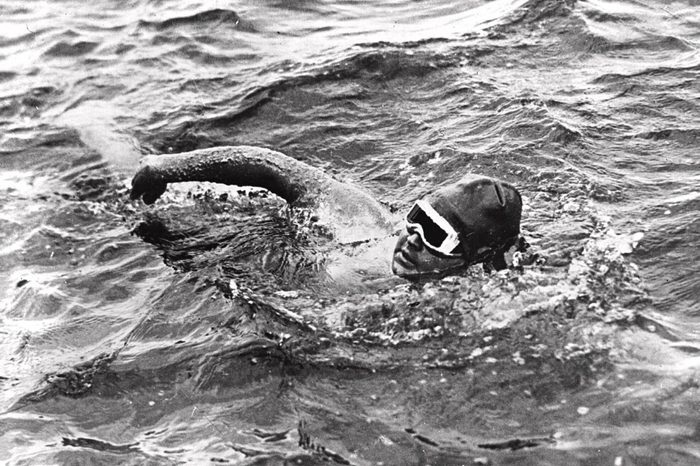
Gertrude Ederle
The Queen of Waves, who also happened to be deaf, was the first woman to swim across the English Channel. And not only did the International Swimming Hall of Famer finish one of the world’s most difficult long-distance swims, she set a record doing it in 1911. Fighting through cold temperatures and strong tides that change direction every six hours for 22 miles, she clocked a time of 14 hours and 34 minutes.
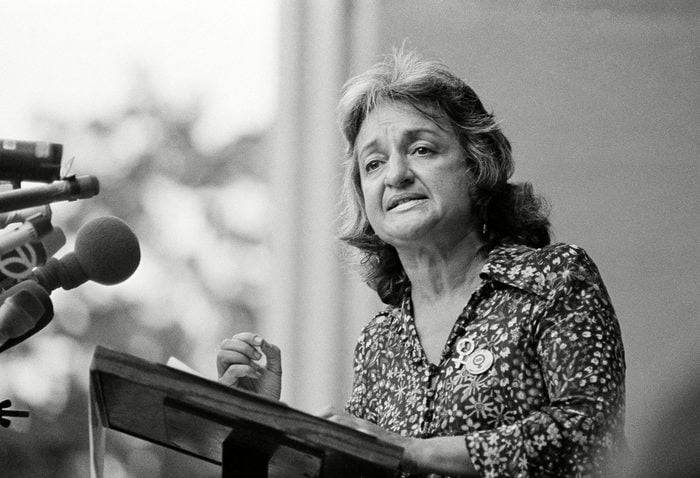
Betty Friedan
Journalist and women’s rights activist Betty Friedan helped ignite the fire of feminism with her articles, lectures, and most famously with her book The Feminine Mystique, which explored the idea that women could find happiness outside traditional roles. She co-founded the National Organization for Women (NOW) in 1966, organized the Women’s Strike for Equality, helped launch the National Abortion Rights Action League (today known as NARAL Pro-Choice America), and worked with leading 1960s and 1970s activists like Gloria Steinem and Shirley Chisholm on starting the National Women’s Political Caucus.
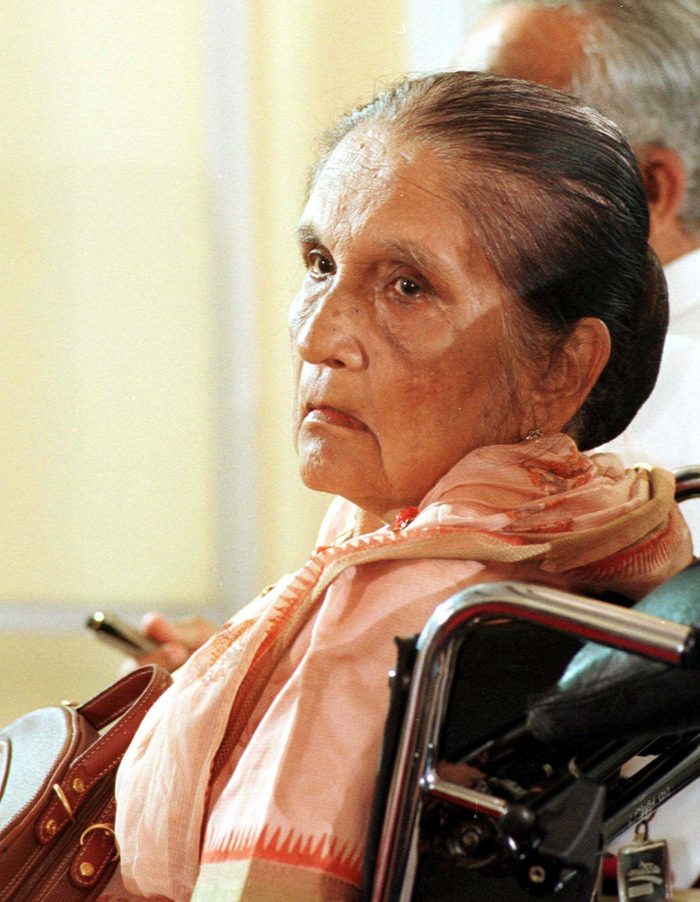
Sirimavo Bandaranaike
When Sirimavo Bandaranaike was elected the prime minister of Sri Lanka in 1960—the first woman to hold a PM position in the world—it was so unusual to have a female head of government that newspapers were unsure how to address her. She was a member of one of the wealthiest families on the Indian Ocean island country, then known as Ceylon, and married a politician who started his own party before becoming prime minister. After he was assassinated, she campaigned for her husband’s party and became the leader of it in May of 1960. She took power six years before Indira Gandhi became India’s first woman prime minister and nine years before Golda Meir was appointed PM of Israel. She made the country a republic, nationalized companies and church schools, and squashed a Marxist insurrection. She also gave birth to the future female president of the country Chandrika Kumaratunga. Check out these other inspiring stories about women who are changing lives all across the world.
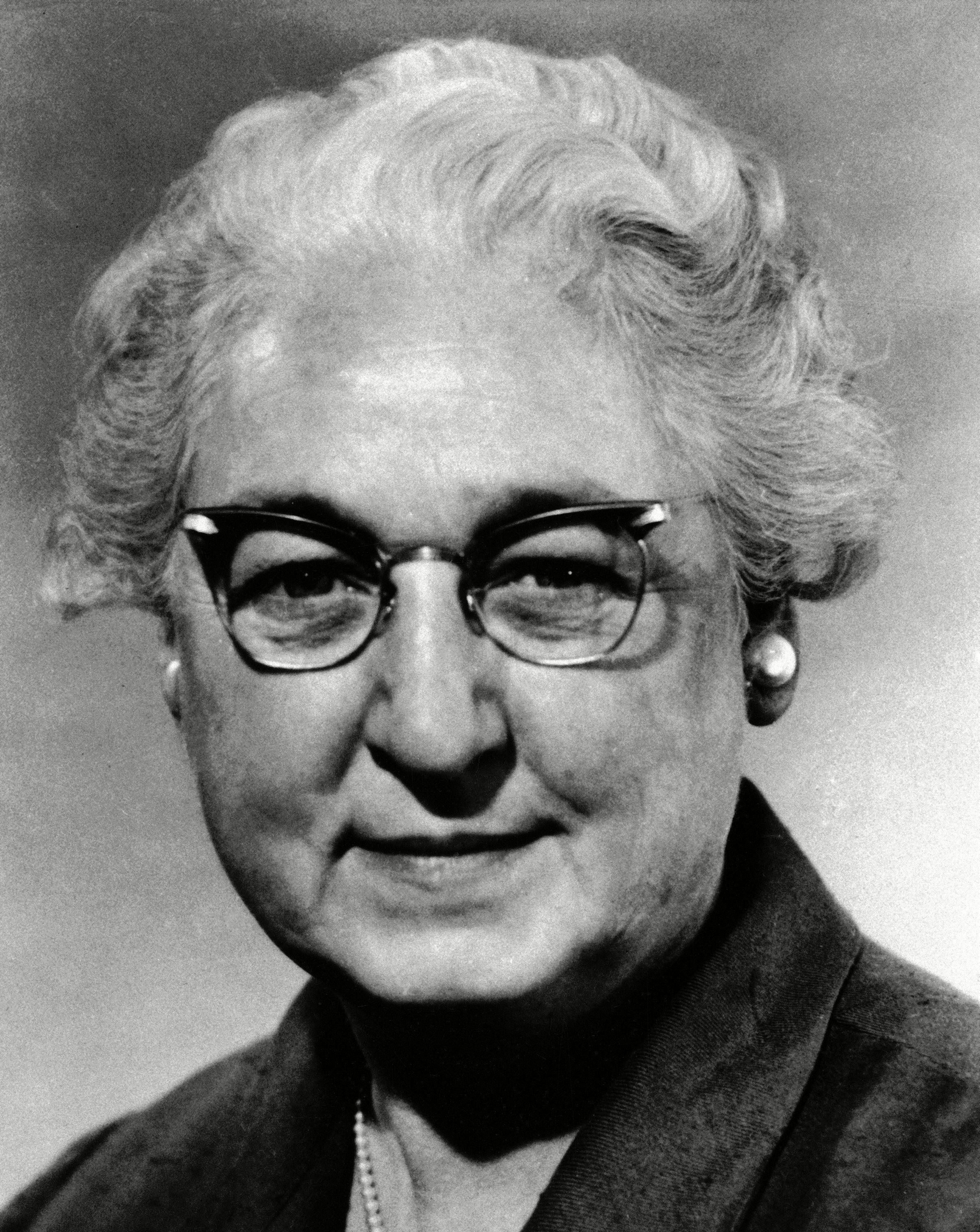
Virginia Apgar
Generations of parents owe this American doctor a huge thank you, as she developed the Apgar Score, the first standardized system of tests to assess if newborn babies were healthy once they made their way from womb to world. Apgar, who was a gifted cellist and violinist in her spare time, also happens to hold the title of the first woman to be hired as a full professor at the medical school at Columbia University.
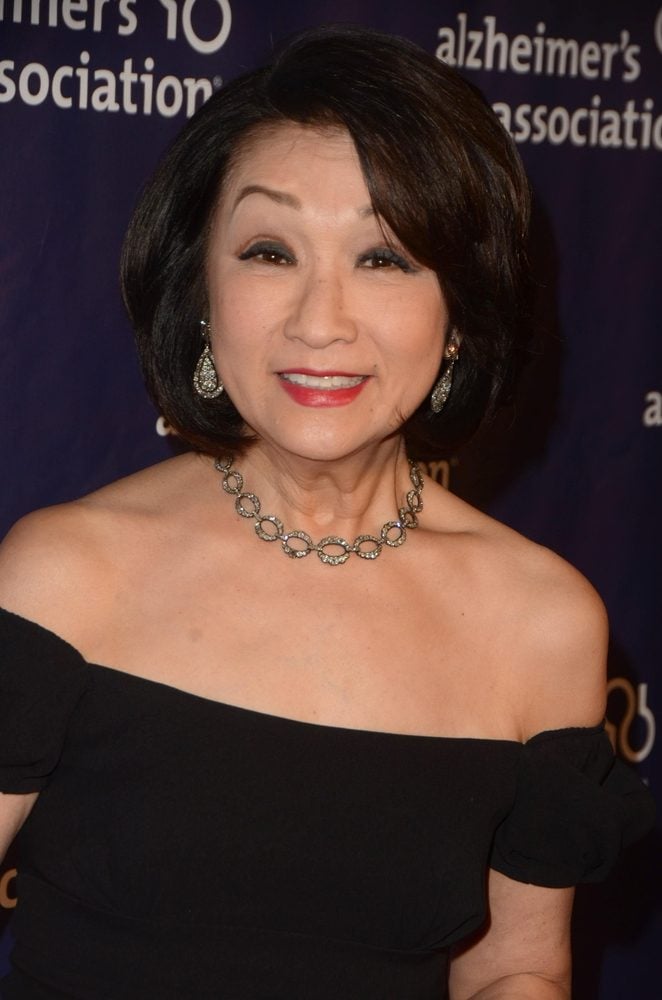
Connie Chung
The Emmy and Peabody Award winner became the first Asian and only the second woman—the first was Barbara Walters—to anchor one of America’s major network newscasts. She was hired in 1993 as the first woman to co-anchor the CBS Evening News. Born and raised in Washington, D.C., this Chinese diplomat’s daughter seemed destined to cover politics and got her start post-college at a hometown TV station. After being hired by CBS, her first big score was an exclusive sit-down with President Richard Nixon during Watergate. She has since worked at ABC, NBC, CNN, and on shows like 20/20. For more stories of political women, read these 44 little-known facts about America’s first ladies.
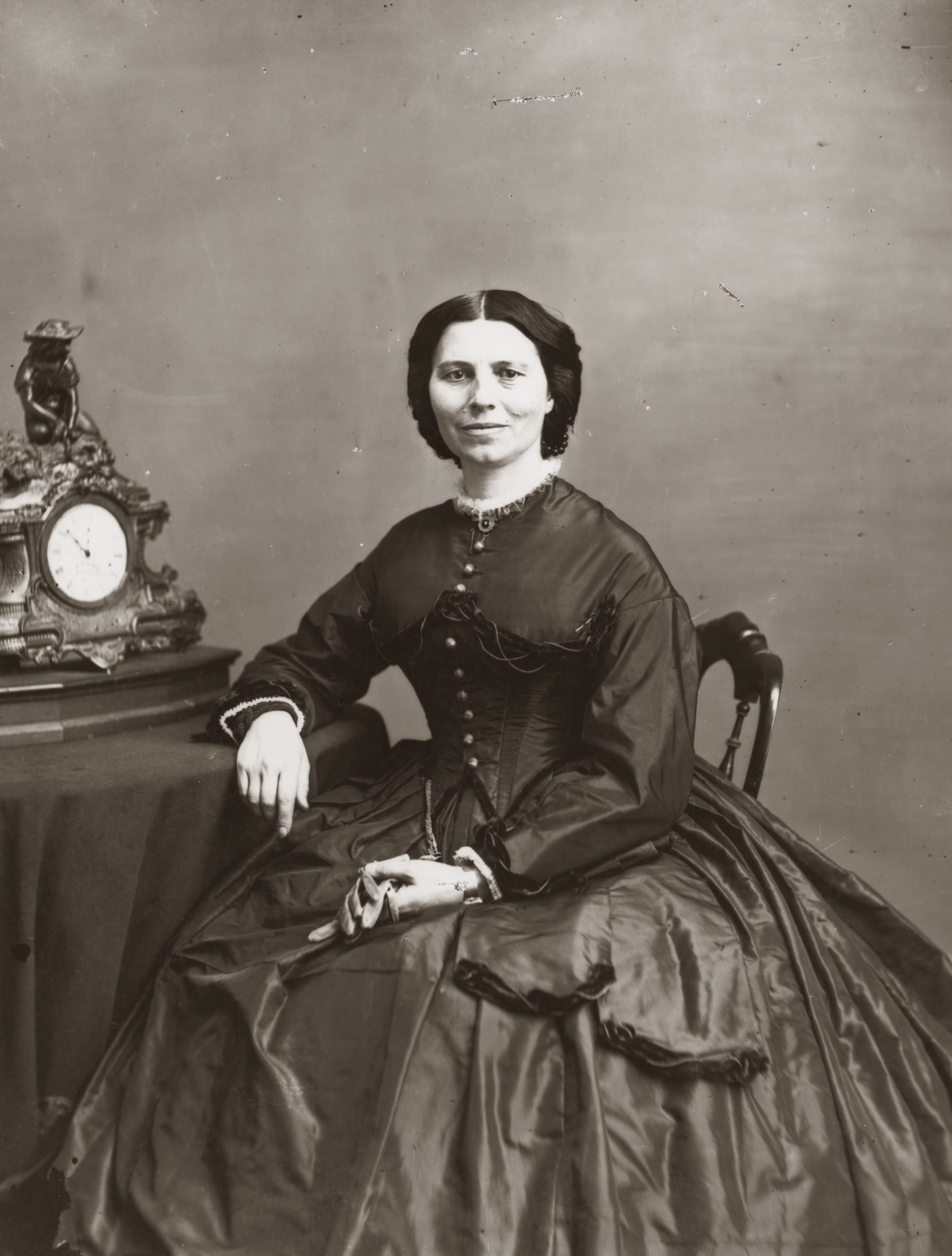
Clarissa “Clara” Barton
Clara Barton was working in the U.S. Patent Office in Washington, D.C. when the Civil War broke out. She collected bandages and supplies before deciding she should get closer to the action. She operated field hospitals on the front lines in Virginia and her bedside manner and cooking earned her the nickname Angel of the Battlefield. After a trip to Europe introduced her to the Switzerland-based Red Cross, she founded the American chapter in 1881, which grew into one of the largest humanitarian aid organizations in the world. She ran it for the first 23 years.
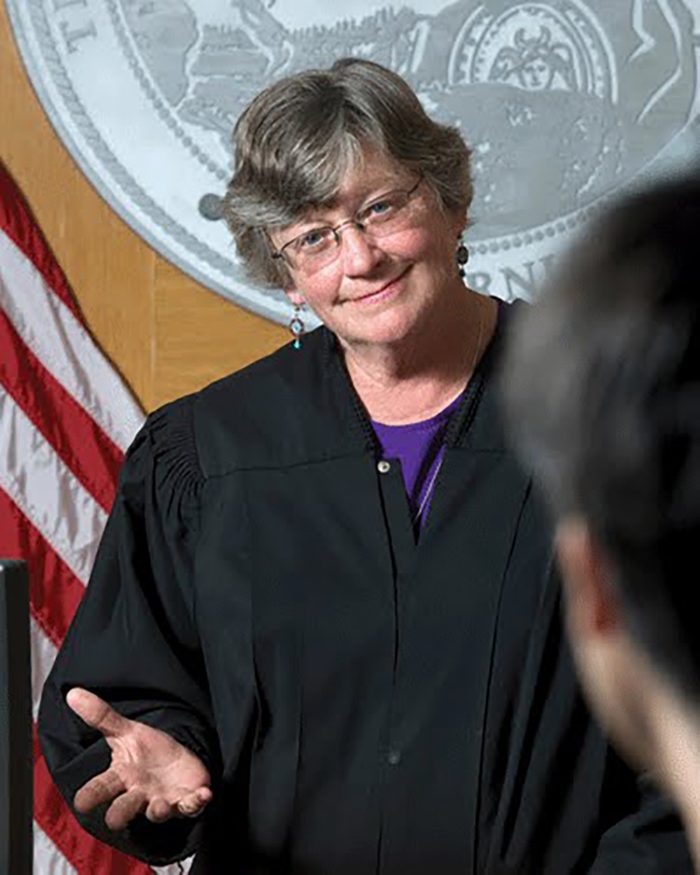
Donna Hitchens
As the founder of the Lesbian Rights Project, which is now known as The National Center for Lesbian Rights, Donna Hitchens litigated dozens of civil rights cases and advocated for lesbians on topics from custody and employment to insurance and public accommodations. In 1982, she wrote and distributed the Lesbian Mother Litigation Manual to aid lawyers working on custody cases involving lesbian parents. The Advocate explains that she later became the first LGBTQ judge in the country to gain her seat on the bench via an election. She served on the San Francisco Superior Court for 20 years as its first openly lesbian elected judge and her NCLR, under executive director Kate Kendell, went on to take the marriage equality fight all the way to the Supreme Court and earned a favorable ruling on cases from four states. Check out some more stories of amazing women in history.
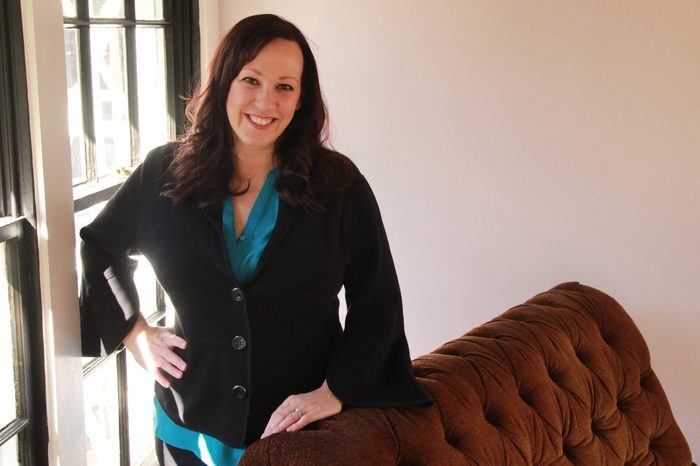
M.J. Hegar
Democrat Mary Jennings Hegar is running for Congress in Texas against a powerful incumbent Republican who has been in office since 2002. She is a decorated hero, a veteran, author of Shoot Like A Girl, a wife, a mother, a childhood domestic abuse survivor, a gender-equality advocate, and a political hopeful. She was also a search-and-rescue pilot for the Air National Guard. During her third tour in Afghanistan, her Medevac helicopter was shot down but she managed to save the lives of her passengers. She was awarded the Purple Heart and the Distinguished Flying Cross with Valor device. But the incident grounded her and after being denied her second-choice job with the Air Force because she was a woman, she advocated for the overturn of the Combat Exclusion Policy, which kept women from entering direct ground combat. When that wasn’t enough, she sued the Secretary of Defense and the policy was repealed in 2013. Don’t miss these 20 empowering women’s history quotes.
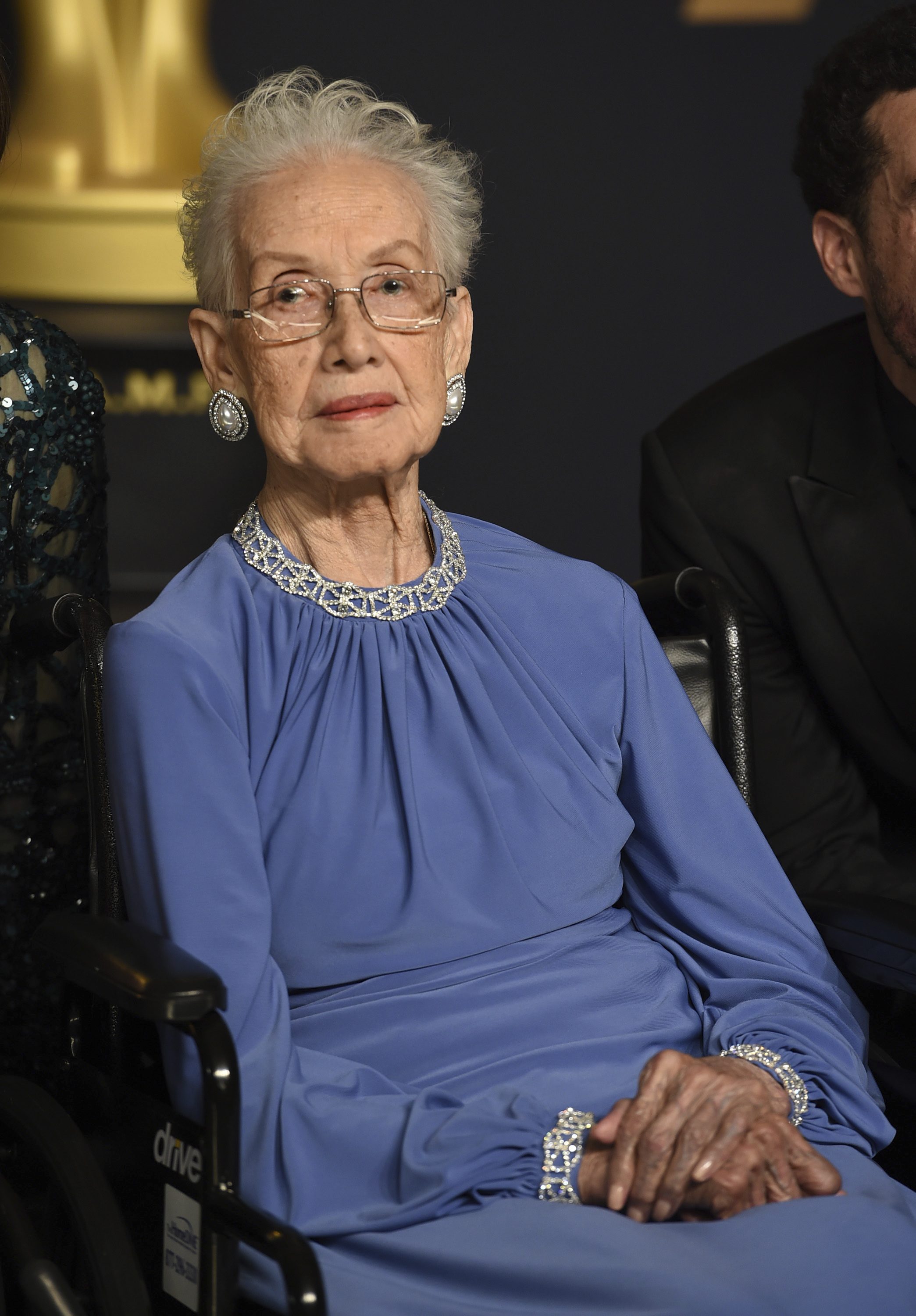
Katherine Johnson
This West Virginian was always exceptional at math. That aptitude landed her in high school at 13 and she graduated with the highest honors at 19. When her home state decided to quietly integrate its graduate schools in 1939, she was one of three black students (and the only female) to be offered a spot at West Virginia University. According to NASA, she went to work for the all-black West Area Computing section at the National Advisory Committee for Aeronautics (which would become NASA) in 1952. For years, she analyzed flight research data and plane crashes alongside fellow females and African-Americans Dorothy Vaughan, Mary Jackson, and Christine Darden and eventually started working with the Space Task Group. She was the first woman in the Flight Research Division to receive an author credit on a report. In 1962, John Glenn refused to take his orbital mission, which would shift the Soviet-American space race, until “the girl” ran the numbers personally as he didn’t trust only the computer to do it. In her 33 years with NASA, she also did calculations for the Project Apollo Lunar Lander, the Space Shuttle, and the Earth Resources Satellite. After many years as a hidden figure, Johnson was the subject of Hidden Figures, the best-selling book and blockbuster film based on it, and was a recipient of the Presidential Medal of Freedom. Surely, a close second to that was having Mattel release a Barbie doll version of her as part of their Inspiring Women Series.
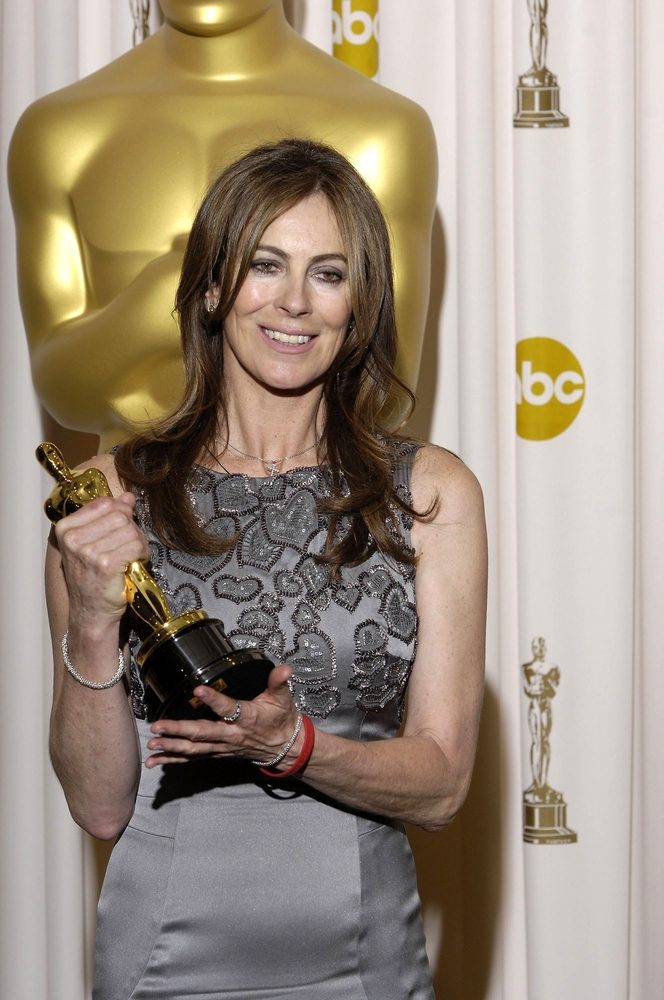
Kathryn Bigelow
Kathryn Bigelow had been making movies for almost three decades when she became the first woman to win the Academy Award for Best Director. Her intense 2009 drama The Hurt Locker also made her the first woman to take home trophies for directing at the Directors Guild of America Awards and the BAFTA Awards. She first journeyed behind the camera on the 1982 Willem Dafoe vehicle The Loveless and is also known for Point Break, Zero Dark Thirty, and a cult classic vampire thriller Near Dark. Sadly, she is still the only woman to have breached the boys’ club and it took eight years for another one, Lady Bird‘s Greta Gerwig, to be nominated. In fact, in over 90 years of the awards show, only five females (Bigelow, Gerwig, Lina Wertmüller, Jane Campion, and Sofia Coppola) have ever been nominated in the category. You need to watch these feminist movies, next.
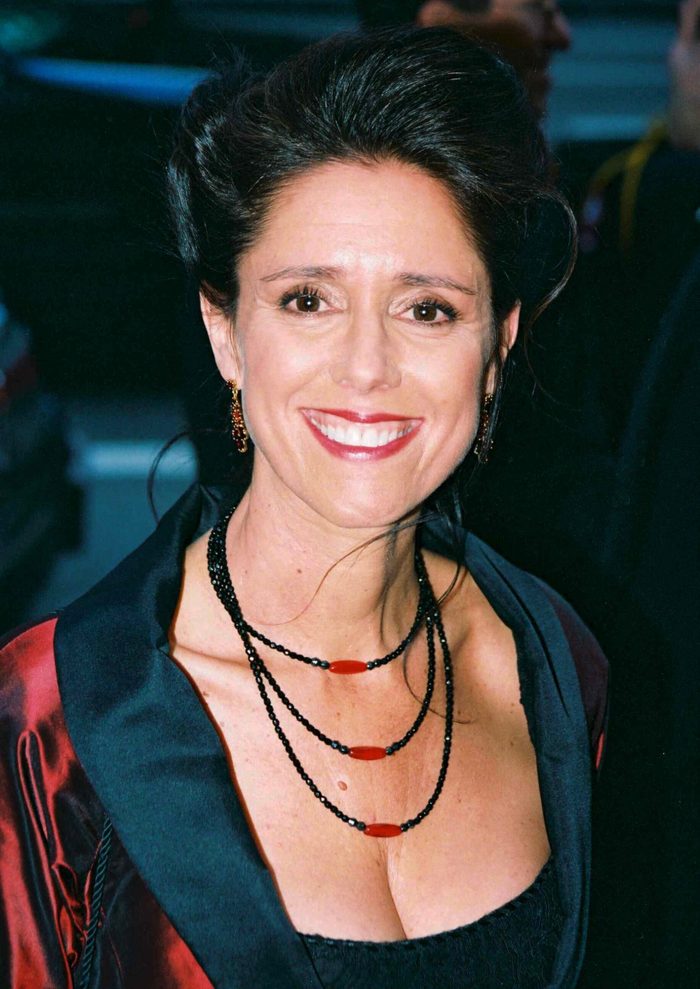
Julie Taymor
The live-action version of The Lion King might be debuting in summer 2019, but a fully live production of The Lion King has been selling out Broadway theaters since 1997. Its director, Julie Taymor, made history as the first woman to win a Tony Award for Best Direction of a Musical the following year. She also designed the show’s costumes and helped design the mesmerizing masks and puppets for the show, and she picked up a Best Costume Design of a Musical Tony Award that year as well. In 2014, The Lion King musical became the highest-grossing worldwide box office work of all time, thanks in part to its long run and many productions around the world.
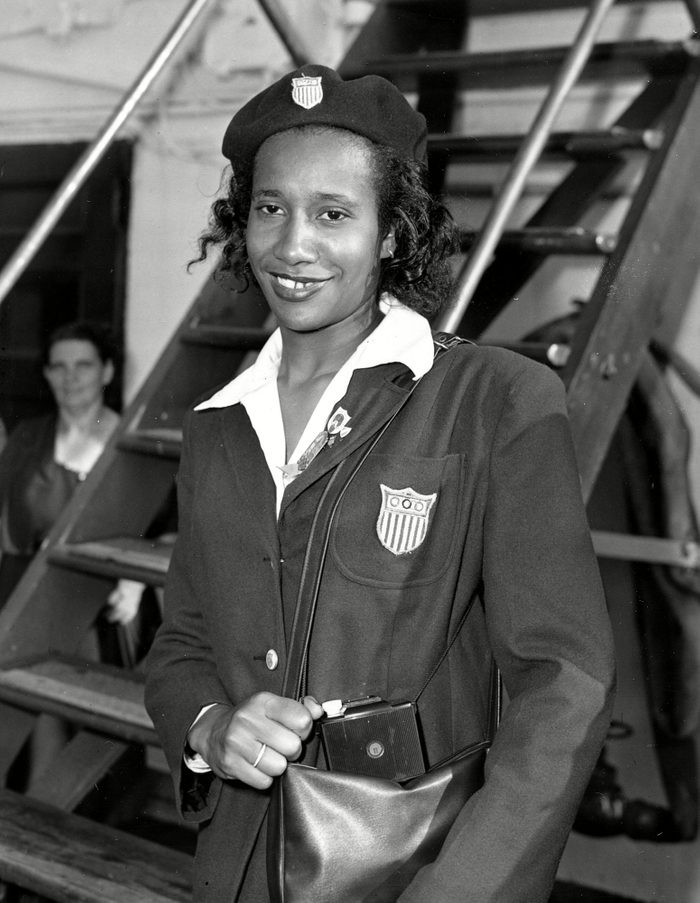
Alice Coachman
Segregation prevented Georgia-born Alice Coachman from competing on sports teams as a teen, but she didn’t let that quash her dreams and love of running. Training on her own, she was eventually offered a scholarship at the Tuskegee Institute in 1939, and she continued to win races and break records in Amateur Athlete Union competitions. In 1948, she finally got her chance to compete in the Olympics (the 1940 and 1944 games were canceled due to World War II), and her record-breaking high jump made her the first African-American woman to win Olympic gold. She retired from competing and went back to school at Albany State, and in 1952 she became the first African-American (man or woman) to receive an endorsement deal when Coca-Cola chose her as a spokesperson.
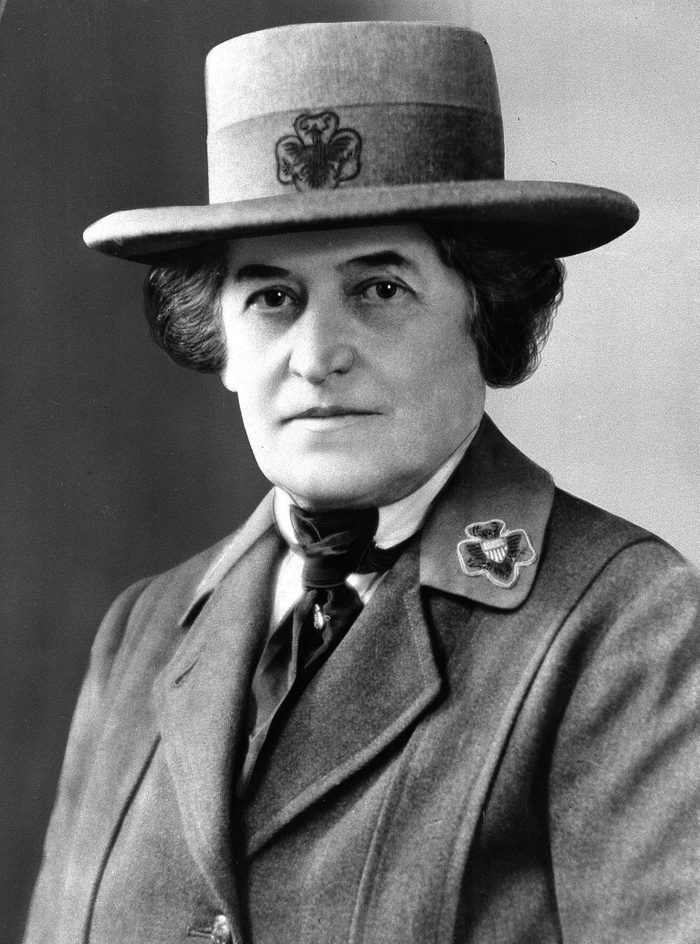
Juliette Gordon Low
Juliette Gordon Low is the Georgia gal behind the Girl Scouts. She grew up interested in athletics, the arts, animals, and nature—all tenets central to the female-empowering leadership organization she’d later found in 1912 after her marriage ended and she had an inspirational meeting with the founder of the Boy Scouts. The first meeting gathered a troop of 18 culturally and ethnically diverse girls at Low’s Savannah home. Deaf since she was a young adult, she also always made sure to be inclusive of those with so-called disabilities, according to the Girl Scouts website. Her knack for fundraising, networking, and public relations helped catapult the group to the world stage. President Barack Obama posthumously awarded her with the Medal of Freedom in 2012.
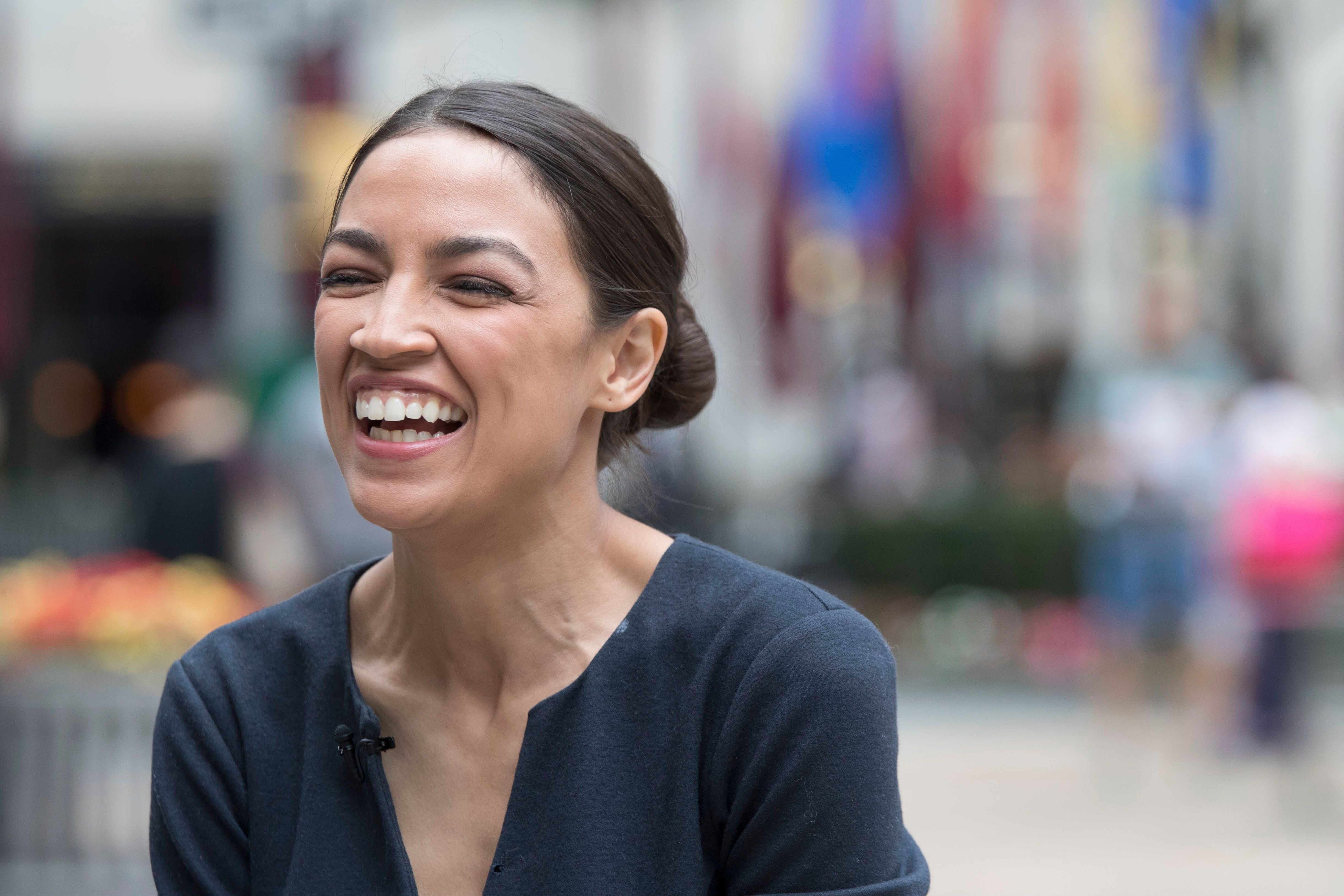
Alexandria Ocasio-Cortez
To call this Bronx-born daughter of working-class Puerto Rican parents a rising star in the New York—and national—political scene would be an understatement. She’s something more akin to a meteor, having beaten a powerful ten-term incumbent in an off-year, mid-year Democratic primary despite him out-fundraising her by a 10-to-1 margin, according to CNN. He had not been challenged for his congressional seat in the state’s 14th District in more than a decade. She then went on to defeat her Republican opponent in the 2018 general election, becoming the youngest person in Congress. Before running for office, the Boston University grad, 29, worked for Senator Ted Kennedy’s office and as an organizer for Senator Bernie Sanders during the 2016 presidential campaign.
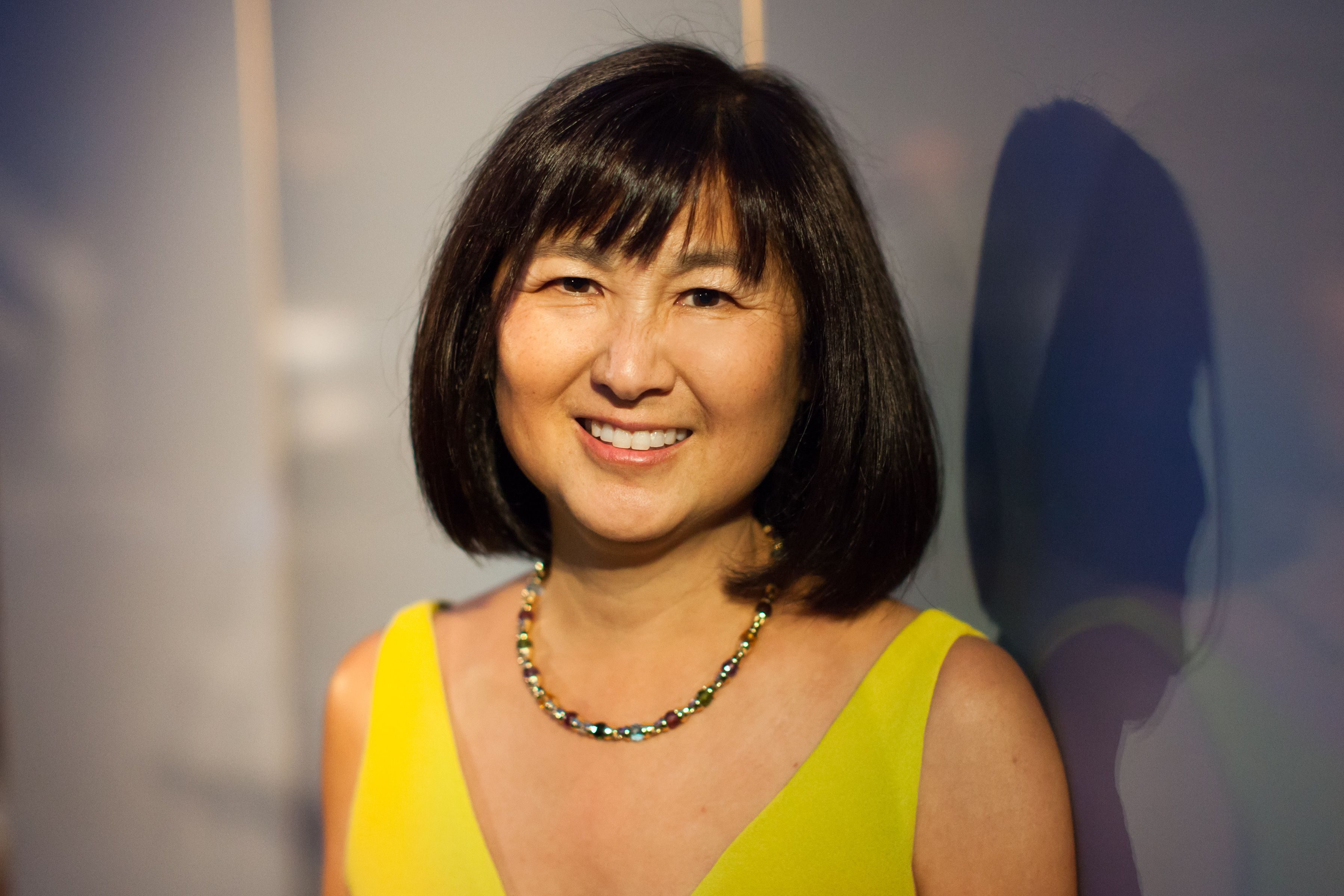
Maya Lin
Most of the monuments in Washington, D.C. celebrate male achievement, so it isn’t entirely surprising that most were designed by men too. One big exception is the Vietnam Veterans Memorial on the National Mall. Twenty-one-year-old Maya Lin pushed her way into that boys’ club by entering a 1981 nationwide public design contest while a senior at Yale University. Her proposal beat out more than 1,440 others. It was dedicated at the end of 1982 and, despite being controversial, is visited by 10,000 people a day. Lin, a first-generation Chinese-American whose parents fled China shortly before the 1949 Communist takeover, has continued to create large-scale sculptural tributes, art installations, and architectural projects, including Miami’s Flutter; the Southern Poverty Law Center’s civil rights monument in Montgomery, Alabama; a topiary park in Charlotte, North Carolina; and the Museum of Chinese in America in the Big Apple. A film about the artist won the 1994 Oscar for Best Documentary. Now, check out more women’s history moments.
Next: Explore these inspirational quotes and books for women.
